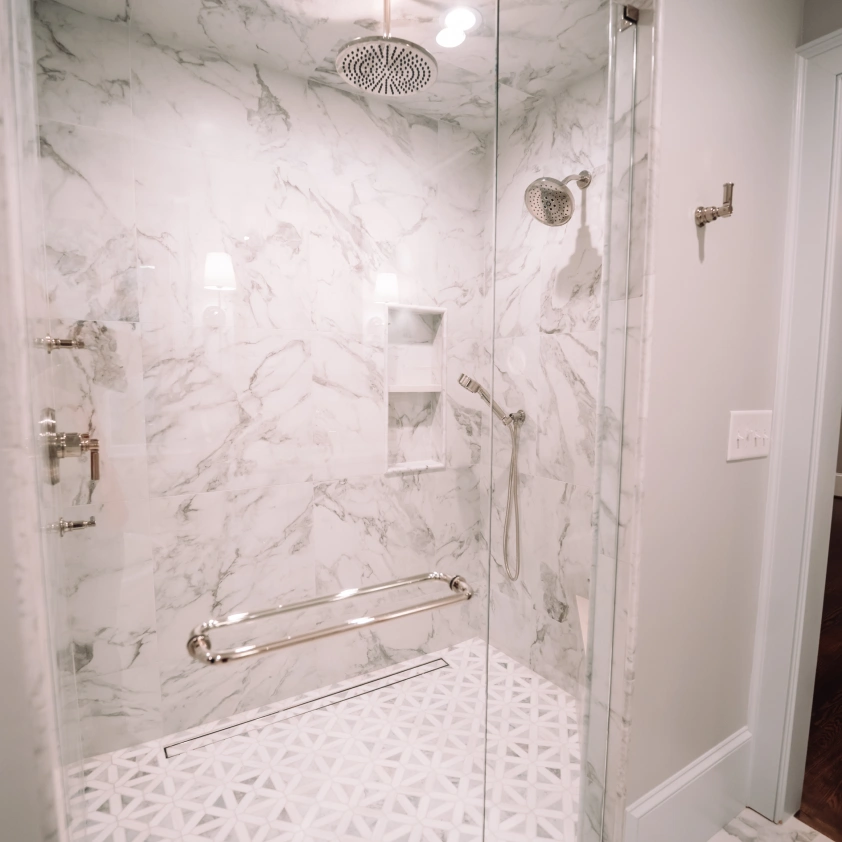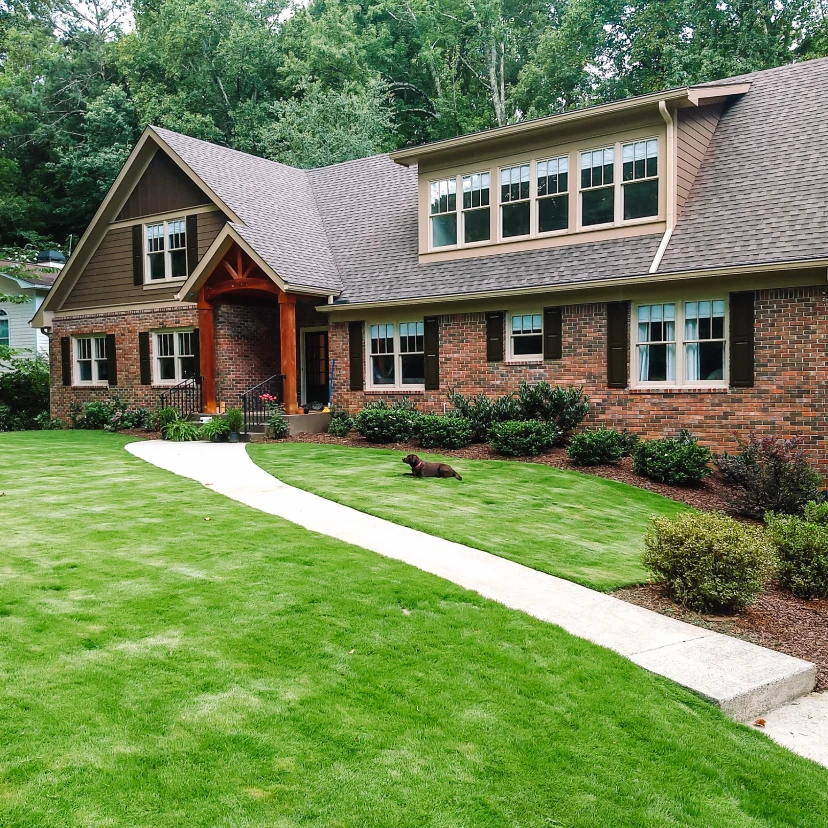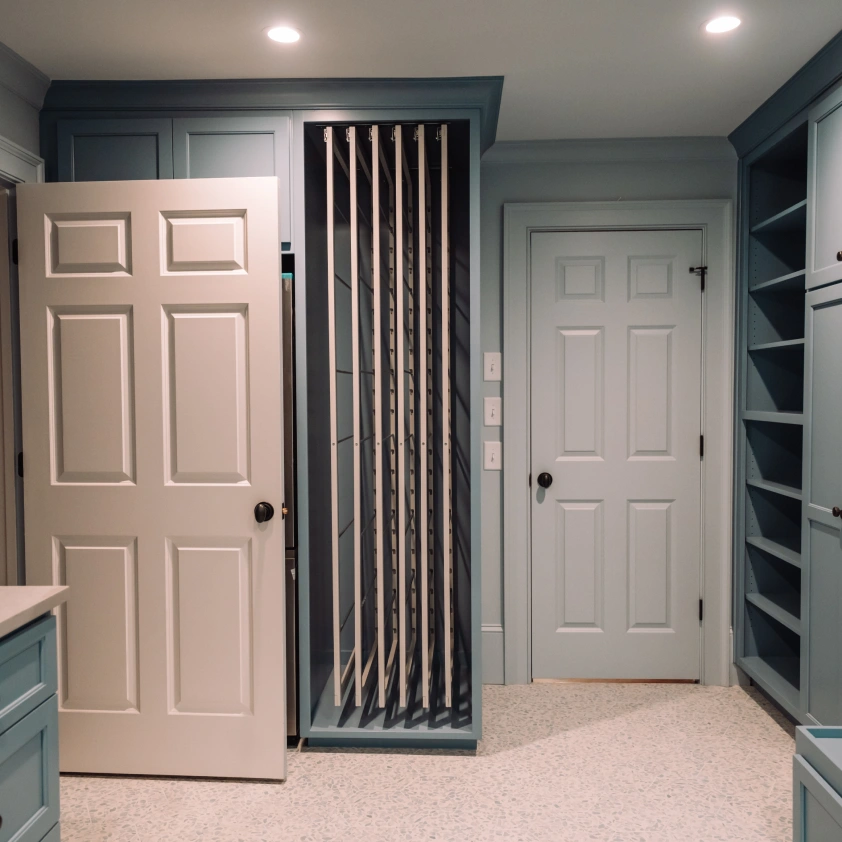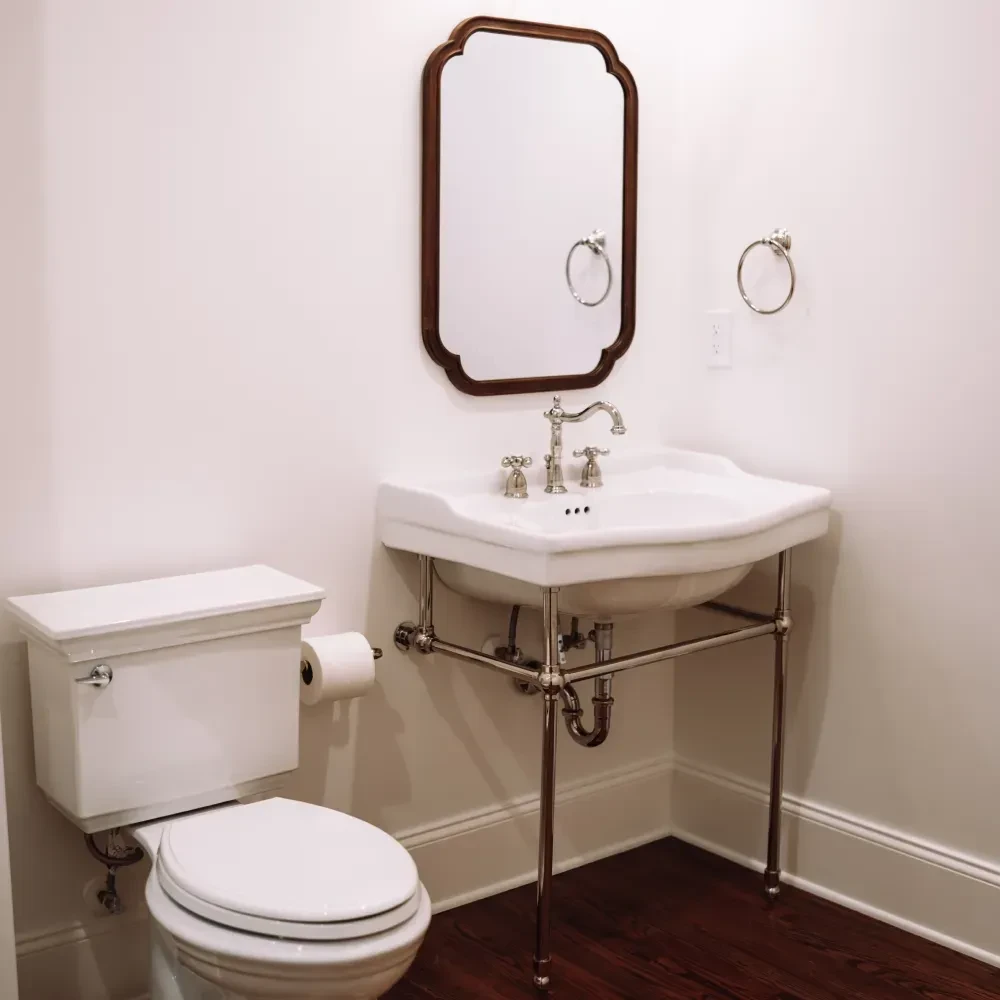Accessory dwelling units in Atlanta, GA, are surging in popularity, and it’s easy to see why. The idea of building a small, fully functional home right in your backyard offers flexibility, rental income, and long-term property value.
If you’re considering accessory dwelling units in Atlanta, GA, this guide answers the most important questions about zoning, cost, financing, value, and whether an ADU is right for your property.
What Is an Accessory Dwelling Unit in Atlanta?
An accessory dwelling unit, commonly called an ADU, is a self-contained residential space located on the same lot as a primary home.
Types of Atlanta Accessory Dwelling Units
Detached Backyard Cottage
A newly built standalone structure in the rear yard.
Attached Addition
A separate living space added to the primary home.
Garage or Basement Conversion
An existing structure converted into an independent dwelling.
ADUs are also known as:
- In-law suites
- Granny flats
- Casitas
- Backyard cottages
Though popular before World War II, ADUs are now returning as a flexible housing solution.
Why Atlanta Is Ideal for ADUs
Atlanta has unique characteristics that make accessory dwelling units especially practical.
Good-Sized Residential Lots
Many Atlanta neighborhoods feature deep and narrow lots. This layout allows space behind the main home for a secondary structure while preserving privacy and yard space.
The dense tree canopy common in Atlanta neighborhoods also helps conceal backyard cottages from street view.
Population Density Leaves Room to Grow
Atlanta ranks relatively low in population density compared to other major cities. There is physical space to accommodate growth without overwhelming neighborhoods.
Parking Flexibility
The City of Atlanta does not universally require additional off-street parking for ADUs. However, some Metro Atlanta municipalities may require one paved parking space. Lot coverage and setback regulations must still be reviewed.
A Diverse Community Landscape
Accessory dwelling units support:
- Multigenerational living
- Aging in place
- Affordable housing options
- Income opportunities
Atlanta has continued updating zoning rules since ADUs were legalized in 2017, making the city increasingly ADU-friendly.
Are Accessory Dwelling Units Legal in Atlanta?
Yes, but zoning matters.
Zoning Requirements for Atlanta ADUs
ADUs are typically permitted on lots zoned:
- R5
- R4
- R4A
Additional regulations may include:
- Setback requirements
- Height limitations
- Stormwater compliance
- Sewer connection rules
- Owner occupancy requirements
If your property falls under a Homeowners Association, HOA rules must also be reviewed.
Before starting design, confirm eligibility with the City of Atlanta planning department.
How Much Does It Cost to Build an ADU in Atlanta, GA?
Cost depends on size, type, finishes, and site conditions.
Typical Cost Range
A 1,000-square-foot accessory dwelling unit in Atlanta may cost between $80,000 and $120,000, depending on finishes and complexity.
Example Cost Breakdown
- Survey, architect, permits: $5,000
- Foundation and framing: $25,000
- Mechanical systems: $15,000
- Insulation, drywall, trim, paint: $18,000
- Roof, siding, windows: $15,000
- Flooring, cabinets, fixtures: $14,000
Actual costs vary based on site access, soil conditions, and material selections.
Fixed Costs Matter
Excavation, foundation work, and permitting are fixed expenses. For this reason, some homeowners choose to maximize allowable ADU size to improve cost efficiency.
Always check for impact fees associated with larger units.
What Financing Options Exist for Atlanta ADUs?
Financing accessory dwelling units in Atlanta, GA can be more complex than standard home renovations.
Common Financing Strategies
- Cash savings
- 401K loan
- Cash-out refinance
- Home Equity Line of Credit (HELOC)
- Second mortgage
- Construction loan
- Renovation loan
- Reverse mortgage
- Private financing
- Shared equity agreements
Traditional lenders rarely offer stand-alone ADU loans unless licensed contractors complete the work.
Interest rates and mortgage insurance may apply.
Can You Rent an Accessory Dwelling Unit in Atlanta?
Yes, but rental rules vary.
Long-Term vs. Short-Term Rental
- Long-term rentals are generally allowed
- Short-term rentals may have additional restrictions
- Owner occupancy may be required
If your goal is rental income, confirm zoning and rental compliance early in planning.
Is an Atlanta Accessory Dwelling Unit a Good Investment?
Accessory dwelling units in Atlanta, GA, can generate income and increase resale value.
Rental Income Potential
Atlanta’s housing costs continue rising. An ADU can help offset:
- Mortgage payments
- Property taxes
- Maintenance costs
Rental income may allow homeowners to downsize without relocating.
Property Value Impact
Homes with permitted ADUs in Atlanta have been reported to sell for significantly more than comparable homes without one. Nationally, properties with ADUs average around 35 percent higher value. Some Atlanta market studies suggest even stronger premiums.
However, returns depend on:
- Quality of construction
- Legal permitting
- Neighborhood demand
ADUs build wealth gradually, not instantly.
Common Mistakes to Avoid When Building an ADU
Underestimating Zoning Restrictions
Not all properties qualify.
Ignoring Utility Planning
Water, sewer, and electrical systems must be designed properly.
DIY Construction Without Experience
ADUs require:
- Structural engineering
- Plumbing
- Electrical
- Permitting
Overbuilding the Lot
The ADU should complement, not overwhelm, the main residence.
Careful planning avoids costly redesigns.
How Long Does It Take to Build an ADU in Atlanta?
Timeline varies by project complexity.
Typical Timeline
Design and Feasibility
Zoning review, surveys, and architectural planning.
Permitting
City approval process.
Construction
Foundation, framing, mechanical systems, finishes.
Most accessory dwelling units in Atlanta, GA, take several months from concept to completion.
Should You Build an ADU or Move to a Larger Home?
Many homeowners compare ADUs to moving.
Advantages of Building an ADU
- Stay in your neighborhood
- Avoid realtor and closing costs
- Generate income
- Customize design
When Moving May Make Sense
- Lot restrictions prevent expansion
- Major structural issues exist
- You desire a different location
For many families, ADUs provide flexibility without relocation stress.
Are Atlanta Accessory Dwelling Units Worth the Build?
Accessory dwelling units are not a trend. They are a practical housing solution that supports:
- Multigenerational families
- Remote work
- Aging parents
- Rental income
- Long-term property value
With Atlanta updating zoning policies and homeowners seeking flexible housing options, ADUs are likely to remain popular.
How a Local Design-Build Team Can Help With Accessory Dwelling Units in Atlanta, GA
Building an accessory dwelling unit involves zoning navigation, structural planning, utility coordination, and permitting expertise.
Intown Renovation Group works with homeowners throughout Atlanta to design and build custom home additions, garage conversions, and backyard living spaces that meet local zoning requirements and long-term goals. Their experience with Atlanta permitting and construction planning helps streamline the ADU process from concept through completion.
If you are considering accessory dwelling units in Atlanta, GA, working with an experienced local design-build team can help you evaluate your property, understand your options, and build a space that adds flexibility, income potential, and lasting value.









